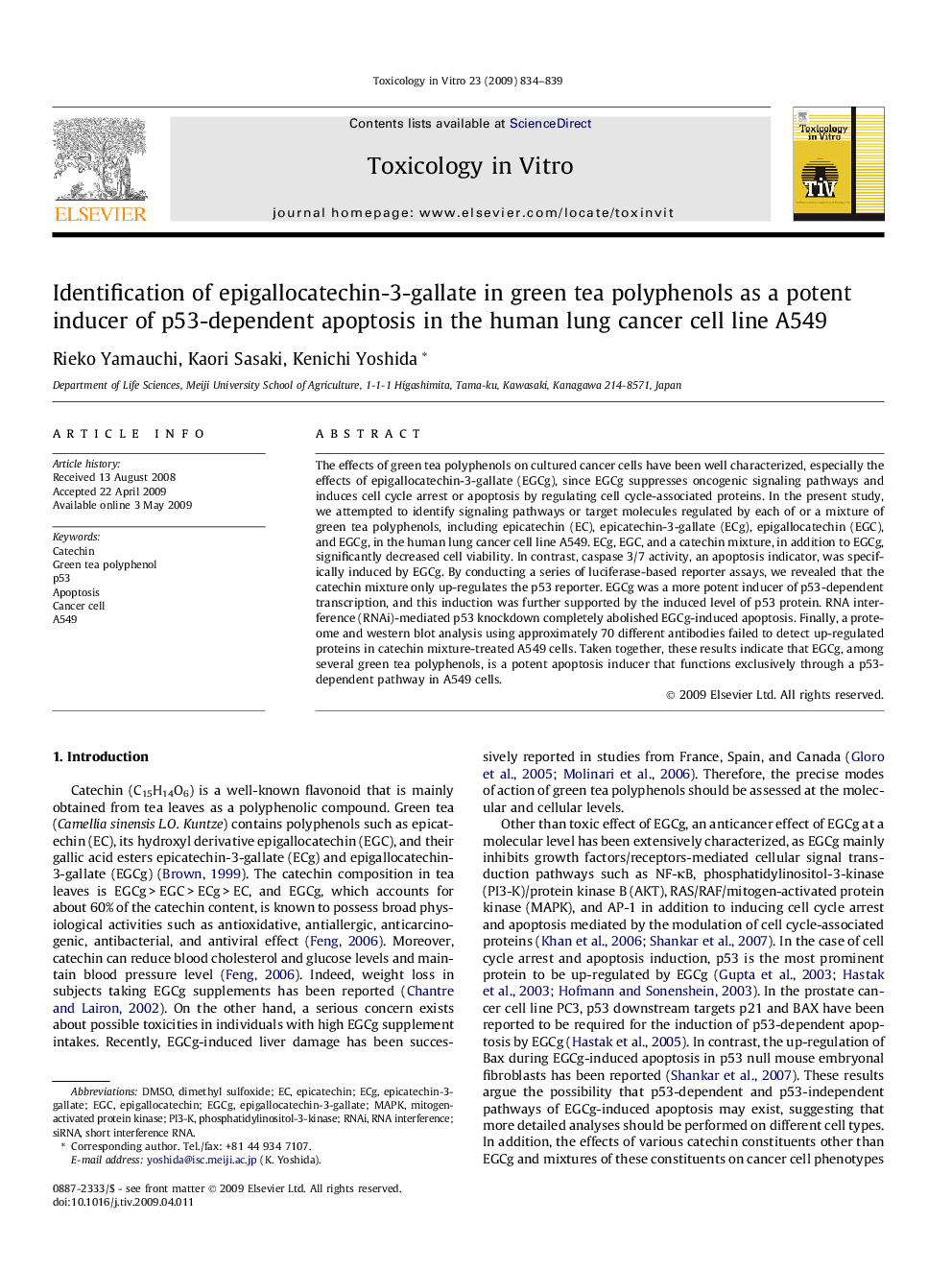| Article ID | Journal | Published Year | Pages | File Type |
|---|---|---|---|---|
| 2603046 | Toxicology in Vitro | 2009 | 6 Pages |
The effects of green tea polyphenols on cultured cancer cells have been well characterized, especially the effects of epigallocatechin-3-gallate (EGCg), since EGCg suppresses oncogenic signaling pathways and induces cell cycle arrest or apoptosis by regulating cell cycle-associated proteins. In the present study, we attempted to identify signaling pathways or target molecules regulated by each of or a mixture of green tea polyphenols, including epicatechin (EC), epicatechin-3-gallate (ECg), epigallocatechin (EGC), and EGCg, in the human lung cancer cell line A549. ECg, EGC, and a catechin mixture, in addition to EGCg, significantly decreased cell viability. In contrast, caspase 3/7 activity, an apoptosis indicator, was specifically induced by EGCg. By conducting a series of luciferase-based reporter assays, we revealed that the catechin mixture only up-regulates the p53 reporter. EGCg was a more potent inducer of p53-dependent transcription, and this induction was further supported by the induced level of p53 protein. RNA interference (RNAi)-mediated p53 knockdown completely abolished EGCg-induced apoptosis. Finally, a proteome and western blot analysis using approximately 70 different antibodies failed to detect up-regulated proteins in catechin mixture-treated A549 cells. Taken together, these results indicate that EGCg, among several green tea polyphenols, is a potent apoptosis inducer that functions exclusively through a p53-dependent pathway in A549 cells.
